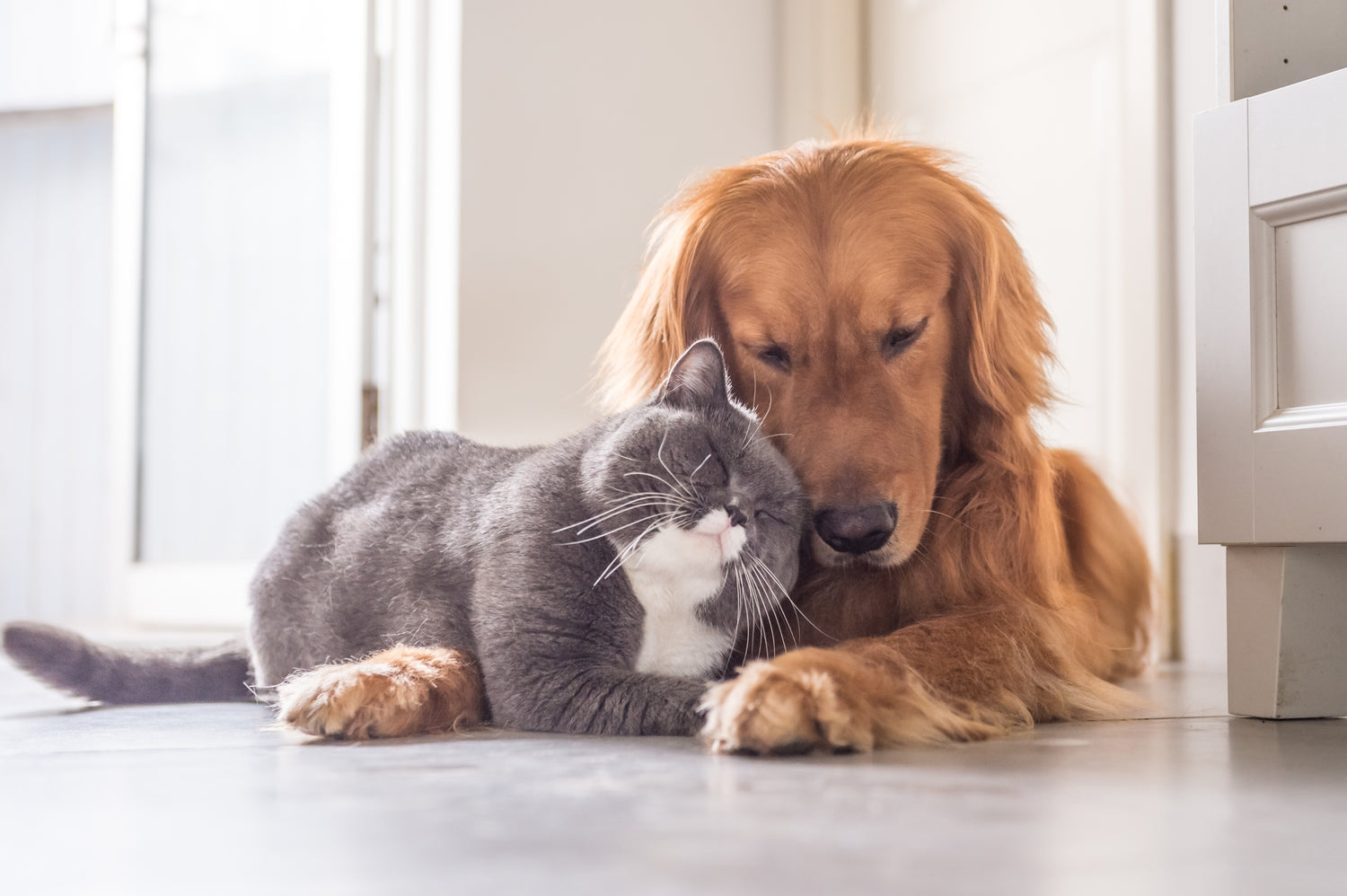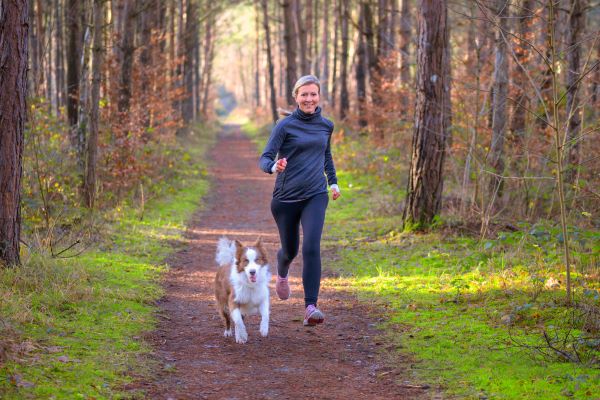
Did you know cats and dogs experience fear and anxiety just like humans? It is important to be able to recognise signs of worry in our pets and know how to respond in these situations.
Check out HiLife’s top tips for helping your anxious pet stay calm and relaxed.
Signs your dog is stressed:
Dogs use body language to communicate, so noticing these signs of stress will help you recognise when your dog may be anxious.
• Signs of stress in dogs include pacing, shaking, yawning, drooling, lip licking, panting, whale eye (showing the whites of their eyes), raised heckles, freezing or becoming stiff, growling, whining, and barking.
Signs your cat is stressed:
Cats are very good at hiding signs of stress, so you’ll need to be vigilant to notice any changes in their demeanour.
• Physical symptoms include diarrhoea, vomiting, bald patches on the fur from over-grooming, eating non-food items (such as plastic), poor appetite, lethargy or sleeping more, excessive eating or drinking, sudden weight loss or weight gain, poor coat condition, and a change in toilet habits.
• Behavioural symptoms include a noticeable change in your cat’s usual behaviour or routine, toileting outside the litter tray, spraying urine on furniture, aggressive behaviour, excessive meowing, and pacing around the home.
Situations that may cause your pet anxiety:
• Moving home — moving to a new house with your pet can be stressful. Not only is the physical moving process a source of anxiety but getting used to their new surroundings can cause worry.
• Being left alone — some pets don’t enjoy being on their own, and they find the uncertainty of not knowing when they will next see their owner as highly stressful. During the Covid-19 lockdown, our pets were used to having us all to themselves and rarely spent a moment alone. When it’s time to go back to the office, this dramatic change in routine can be upsetting.
• Bonfire Night — according to the RSPCA, 45% of dogs in the UK show signs of fear when they hear fireworks. International Cat Care also highlights how stressful and dangerous Bonfire Night is for cats.
• Halloween — this can be stressful for our pets as trick or treaters can bring visitors to the door, with children in fancy dress knocking and ringing the doorbell.
• Christmas — the change in routine at Christmas can be unsettling for your pet. The visitors, children, loud music, and decorations can be a source of worry.

How to calm a stressed pet:
Once you have recognised the signs of stress in your pet, you can help ease their anxiety.
Top tips for reducing stress in cats:
• Routine — being predictable in your behaviour and creating daily routines is great for minimising anxiety. For example, feeding them their favourite HiLife it’s only natural food at the same time helps establish routine.
• Resources — if you have more than one cat, make sure they have enough resources within the home, such as food bowls, water bowls, litter trays, beds, hiding places, high perches, scratching posts, and toys, so they are not competing.
• Create a safe space — cats love having their own place away from potential perceived threats. Consider setting aside a high up shelf with a cosy blanket, cushion, or high-walled bed (such as this one from Scruffs), and their favourite HiLife it’s only natural Chicken Breast Treats. This is particularly useful for occasions such as Bonfire Night, Halloween, or Christmas.

Top tips for reducing stress in dogs:
• Routine — if your dog’s day is unpredictable, this can put them on edge. Keeping to the same exercise and feeding routine of their favourite HiLife BANQUET dinner will add a sense of normality to their day.
• Regular exercise — daily exercise is vital for your dog’s wellbeing. Your dog’s age and breed should be considered when picking a routine that’s right for them, but could include walking, participating in a sport such as agility, enrichment games in your home, and even swimming.
• Create a safe space — as with cats, dogs love having their own space, whether this is a cosy bed in a quiet corner of the house or a coffee table with a blanket draped over the top and a bed underneath. Again, a den is important for avoiding stress around Bonfire Night, Halloween, or Christmas, and you can add their favourite HiLife treats for added comfort.
Advice for reducing stress in pets from our HiLife friends:
Elise, Milo, Odi, Teddy, and Tilly
Elise is the owner of four sleepy cats — Milo, an eight-year-old tabby; Odi, a five-year-old British Shorthair; and Teddy and Tilly, two British Shorthair kittens. Here’s Elise’s top three tips on how she keeps her cat family chilled…
“1. Calming plug-ins always keep the cats happy.
“2. It’s great to always have safe places for your pets to hide away in if they are feeling stressed or scared — for example, when there are fireworks or strangers in the house.
“3. Playtime or enrichment games with treats are always a great distraction from stress.”

Abi and Sonny
Sonny is a six-year-old ex-racing Greyhound who, after a rough start, now leads a very calm life in the heart of Devon with his owner, Abi. Here’s Abi’s top tops on reducing stress in dogs…
“1. We make sure Sonny always has a safe place — which is the human bed — for occasions like Bonfire Night! He also finds it comforting if we play the radio or TV in the background.
“2. When we first brought Sonny home, he had never seen stairs before! We started with feeding him on the bottom stair, slowly making are way up — always encouraging and being very patient. Suddenly, one evening, Sonny braved his way all the way to the top and down again and he was very pleased with himself.
“3. Going from kennel life to human life can be very scary. Lots of different smells, different objects in one room, and humans coming and going. Always try to stay patient and, when leaving for the first couple of times, don't leave for too long. Build it up slowly to make sure they are comfy.”
For more information on how to help anxious pet, check out these useful resources:
1. International Cat Care
2. Cats Protection
3. Dogs Trust
4. Battersea
Always speak to your vet if you are concerned about your pet’s wellbeing.





